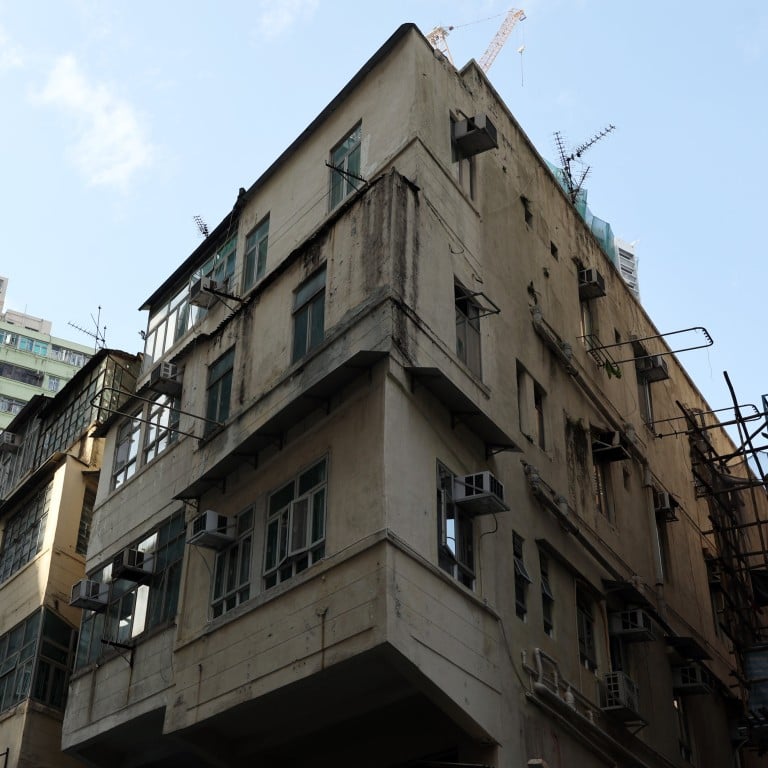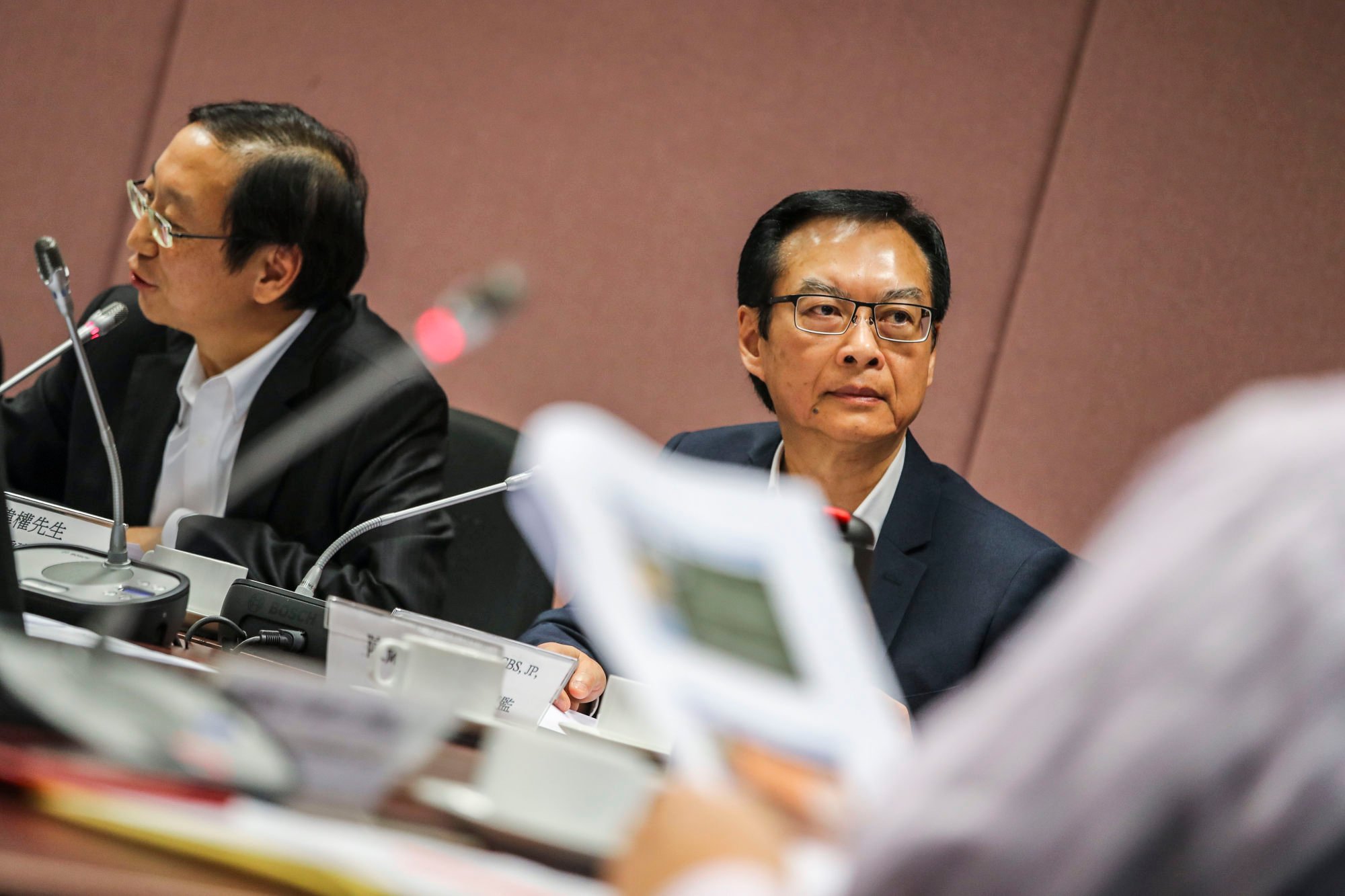
Hong Kong redevelopment authorities to give cash subsidies to properties owners for producing building maintenance manuals
- Urban Renewal Authority also says maintenance contribution funds will get one-off government cash injections if owners regularly pay in for three years
- ‘We hope it can become an incentive to encourage owners to set up reserves for future maintenance projects and make regular contributions,’ authority adds
Hong Kong’s Urban Renewal Authority will start giving cash subsidies to property owners under a new scheme to help cover the cost of creating building maintenance manuals and repair expenses in a bid to keep ageing structures in good condition.
Wai Chi-sing, the managing director of the statutory body, on Sunday said the authority would give one-off cash injections to owners that contributed to building repair funds for three years.
“We have reserved HK$15 million [US$1.91 million] each year for the additional injection of money into the special fund,” Wai said. “We hope it can become an incentive to encourage owners to set up reserves for future maintenance projects and make regular contributions.”

The subsidy scheme is scheduled to launch in April, with the initial handouts covering half the cost of hiring an authorised party to create a maintenance manual for a building’s common facilities.
The approved party could also develop a plan outlining areas in need of inspection and their estimated repair costs that covered a 10-year period, the authority said.
Subsidies for producing manuals will be capped based on the number of flats per building, with those consisting of 20 or fewer getting no more than HK$15,000 and those with at least 50 flats eligible for as much as HK$30,000.
Owners’ corporations for participating buildings would also need to convene a meeting to establish the special fund and a regular payment system, the authority said.
The statutory body said it would also provide a lump sum contribution to each fund worth about 10 per cent of the amount raised by owners over the first three years.
Hong Kong set to reduce sellers threshold for old buildings to as low as 65%
Wai said the scheme sought to change the mentality of building owners from “patching up faults as they arise” to conducting “preventive maintenance”.
The authority would review the scheme and the subsidy amount in the future to determine whether the body could convince more owners to take charge of inspections and repairs at their properties, he added.
“If future policies and legislation can facilitate it, I believe it can raise owners’ motivation to make repairs and their awareness of building safety,” he said.
The government will also scrap three subsidy schemes launched a decade ago as the programmes overlapped with other initiatives.
The safety of old buildings came under the spotlight last year after a spate of incidents that saw people injured and vehicles damaged by falling concrete.
Hong Kong’s URA expects HK$1.5 billion loss on project at prime residential site
Government figures showed the number of private buildings aged 50 and above rose from 4,300 to 9,200 between 2011 and 2021. The figure is expected to rise to more than 14,800 by 2031.
Secretary for Development Bernadette Linn Hon-ho on Sunday said redeveloping some old and dilapidated buildings could be the more practical option as repairing them might not be “cost-effective”.
The government earlier proposed lowering the threshold for the proportion of owners who must agree to sell old private buildings to as little as 65 per cent for seven neighbourhoods targeted for redevelopment to speed up the pace of urban renewal.
The Post reported last month that the URA expected a project at a prime residential site on Shing Tak Street in Ma Tau Wai to record a loss of HK$1.5 billion as the winning bid recently awarded was far below the acquisition cost two years ago when the property market was peaking

